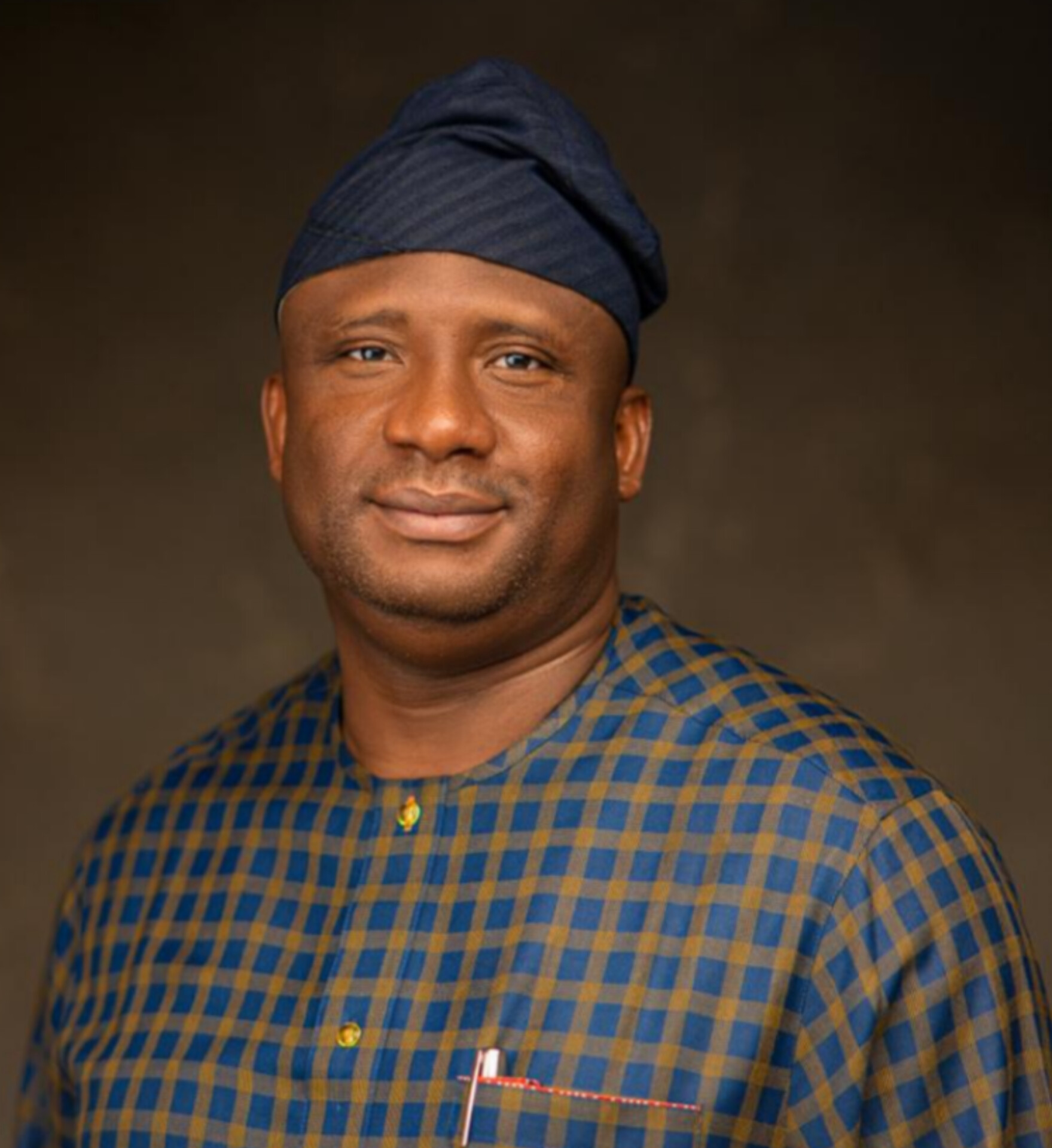By Ehichioya Ezomon
Bomb-throwers in the political arena and mediasphere are at work in Edo State, orchestrating a campaign of personal attacks on the candidate of the All Progressives Congress (APC), Senator Monday Okpebholo, aimed at demarketing him ahead of the September 21, 2024, governorship election.
The attacks look syndicated to opposition elements within the party, and outside groups parading as writers, who question Okpebholo’s character, competence, capacity, congnition, carriage, charisma, and ability to articulate” achievable actions to take Edo State out of its morass.
Take a look! Writing in The Guardian in early June 2024, one Ifeanyi Ibeh, in a piece captioned, “Edo 2024: Okpebholo and his crumbling sandcastle,” related how an “abracadabra” primary produced Okpebholo, whose co-contestants aren’t supporting his candidacy, even as many topshots desert the APC because of the “difficult-to-sell” Okpebholo candidacy.
Mr Ibeh, who signed off the copy with, “Etakibueba writes from Benin City” – different from his byline – said of Okpebholo: “Avoiding any engagement during the day, and only manages to crawl out at night, once in a while, almost being a recluse or hermit, he would, however, not fail to cause public commotion whenever he manages to come to the open, through series of gaffes, palpable display of lack of self-confidence, incoherent and unsychronised deliveries and his annoyingly lack of basic knowledge needed for high office like that of Governor of Edo State.”
That commentary – like many that’d been run in the mainstream and social media – oozes and drips with bitterness, bile and hatred towards Okpebholo, who’s humbly called for issue-based discourse rather than a campaign of calumny and character assassination.
Nobody begrudges the Edo voter wanting a “perfect” Governor for the state, considering the lacklustre performance of Governor Godwin Obaseki who – as is evident today – played on the people’s intelligence against then-Governor Adams Oshiomhole he’d labeled as a “godfather” dictating to him, as if Oshiomhole wasn’t a “godfather” when he swung the governorship for Obaseki in 2016.
“Say no godfatherism” guided the campaigns for Obaseki’s reelection in 2020 on the platform of the PDP – when he’s denied a return ticket by then-Oshiomohle-led APC’s National Working Committee (NWC) – only for Obaseki to turn into a godfather and “anointed” his business partner, Dr Asue Ighodalo, as the PDP candidate for the September 2024 poll.
What’s curious about the sudden focus on Okpebholo’s “suitability for Governor” is the regularity and spread of the crusade – starting to appear in the media at the same time, and with the same or similar message of his non-qualifiication for the office.
Thus, this article will be examined in two parts: This week on the departure of High Chief Francis Inegbeniki from the APC, and the next edition on the pledge by a dubbed “Media icon” John Mayaki, to support another candidate against Okpebholo at the poll.
For being “influenced” to do a hatchet job on Okpebholo, ghost and hack writers can be pardoned, but what about former leader of the APC, Chief Inegbeniki, the “Uzoya of Esanland” (literally, ‘Alleviator, Rescuer’), joining the chorus of Okpebholo isn’t qualified to be Governor, and yet backed him – or was his support for another Esan aspirant – against well-oiled and formidable opponents in the February 2024 primary, and greeted him for picking the ticket?
Because, as of February 24, 2024 – even before the conclusion of the repeat primary on March 1, which Okpebholo won as he did in the initial balloting on February 21 – Inegbeniki had congratulated Okpebholo, and thanked APC members nationwide for electing him as the party flagbearer.
Praising especially APC members from Edo South and Edo North, for their votes, and stating that “Esan people will not take this support and trust for granted,” Inegbeniki, in a statement, said: “Let me thank President Bola Ahmed Tinubu, APC National Working Committee (NWC), APC Governors and party stakeholders for standing for truth and equity, which led to the election of Senator Okpebohlo as Edo APC governorship candidate.
“I must not fail to also appreciate our leader, Comrade Adams Oshiomole, he is a human being and entitled to his own opinion. Irrespective of his position and the stands he took in the just-concluded primary elections, he still remained our leader. We will come together to reconcile ourselves and move forward. We are one family, sometimes we disagree to agree.
“I sincerely appreciate Edo APC leaders and members for the confidence they have reposed in Senator Monday Okpebholo, by electing him the APC governorship candidate, and by which the Edo APC have reaffirmed that democracy is all about equity and inclusiveness. They are indeed the true heroes of our democracy by supporting rotation of power to Edo Central.”
Earlier on August 8, 2023, Inegbeniki not only greeted Sens. Oshiomohle and Okpebholo for their appointments to chair the Senate Committees on Interior, and Public Procurement, respectively, but also described the duo as “champions of Edo State and APC in the 10th National Assembly… very experienced individuals and achievers in private and public sectors.”
“I am excited and confident that Senator Adams Oshiomohle and Senator Monday Okpebholo will put their respective experience and capability to play and they will make positive impact in the Senate,” Inegbeniki said.
But on June 8, Inegbeniki resigned from the APC, shrouding his real reason for quitting, only that: “There comes a time in the life of every man when some hard decisions must be taken not only in one’s interest but in the general interest of his people. This is one of such moments.
“I believe that I have contributed my quota to the growth of the party in my ward, local government area, senatorial district, state, and our country, Nigeria. However, some recent developments in the party in my LGA and state conflict with my core principles and values. This has led me to seriously evaluate my political future in Edo State and decide on the way forward.
“After due consultations with my family, friends, and political associates, I wish to formally inform you of my decision to resign my membership of the All Progressives Congress (APC) and my role as the State Vice Chairman. It is a hard decision, but it is the best in the interest of the good people of my senatorial district.”
Forty-eight hours after, in a chat with members of the Edo State Council of the Nigeria Union of Journalists (NUJ) in Benin City, Inegbeniki predicted a “political tsunami” in the APC chapter, even as he debunked a viral post that Okpebholo had visited, and prevailed on him to rescind his exit from the party.
Inegbeniki said, with some air: “I was in my house consulting with all my friends and political associates, and I can tell you that I have received calls from far and wide. The only person that has not called me is President Bola Tinubu.
“Okpebholo appeals that I should rescind my decision, and as usual, what is about to happen in APC will be a political tsunami. I’m only leading the way. I cannot rescind my decision because it is about the state. It is not about me but for the improvement of Edo State.
“I am here to tell you that there is no truth in the report that I have rescinded my decision to quit the APC. I stand by my resignation and I have left the APC. I communicated (it) in my letter.
“At the moment, I need a break, I want to stay out of partisan politics. Any time I change my mind, I will let the world know. I am also an activist and now that I am not a member of any political party, I will talk about the ills taking place in the state.”
Inegbeniki cleared the air that his decision to quit the party had nothing, whatsoever, to do with the recently-constituted APC Edo campaign council from which some party chieftains were reportedly dropped.
Lately, Inegbeniki allegedly added another layer to the reason(s) he exited the APC: That Okpebholo lacks “character, competence and capacity” to be Governor of Edo State. So, barely three months to the September 21 election, Okpebholo, in the estimation of Inegbeniki, has turned out a nonentity, and no longer deserving of the office of Governor?
Yet, in a spate of 10 months, from August 8, 2023 to June 8, 2024, Inegbeniki had identified, and described Okpebholo as “a champion of Edo State and APC in the 10th National Assembly; a very experienced individual; an achiever in private and public sectors; a lawmaker, who will put his experience and capability to play and will make positive impact in the Senate; and in whom the APC leaders and members resposed their confidence by electing him the governorship candidate.”
If Inegbeniki’s altruistic in assessing Okpebholo’s suitability for Governor, he would’ve discovered that many of the qualities he belatedly wanted in a Governor were embedded in his “double congratulations” to Okpebholo when he’s made Chairman, Senate Committee on Public Procurement in August 2023, and when he won the APC double-header primary for the 2024 Edo governorship election!
Hence, Inegbeniki’s latter-day assessment of Okpebholo as unfit for Governor – and that the APC would be hit by a “political tsunami” he’s leading the way – fuels the narrative that his “after-thought” actions have more to do with personal grievances as a politician, whose first – and only priority – is self-interest, and not the public display of platitude of fighting on behalf of the people!
Mr Ezomon, Journalist and Media Consultant, writes from Lagos, Nigeria





